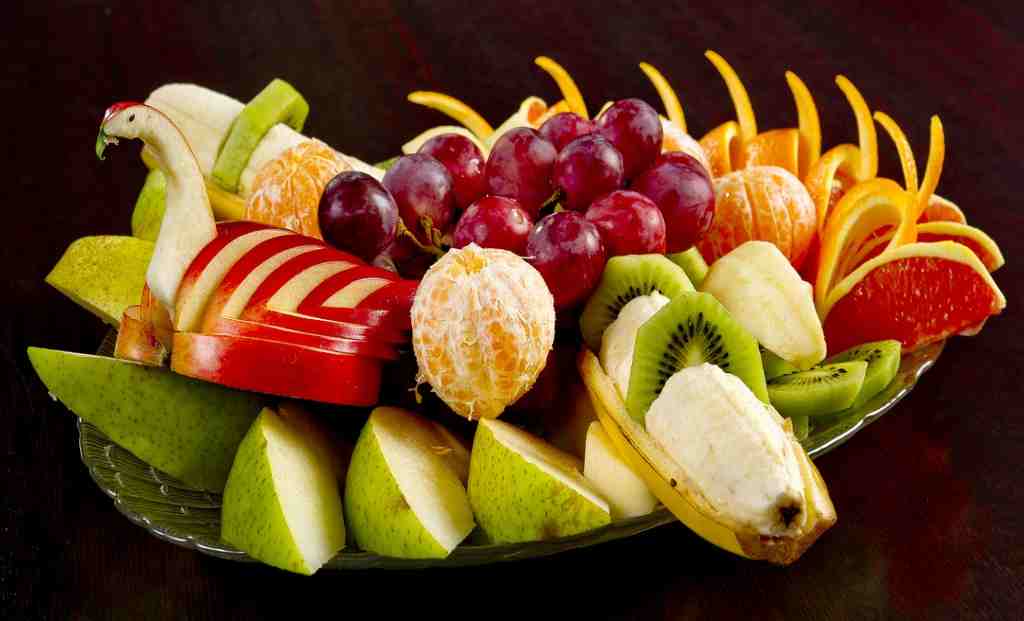Ms Sharvari Gude, Senior Dietician, Manipal Hospitals, Goa
-
Berries
Berries are high in anthocyanins, plant pigments that have antioxidant properties and are associated with a reduced risk of cancer.
Plant-based foods are rich in nutrients known as antioxidants that boost your immune system and help protect against cancer cells. Diets high in fruit may lower the risk of stomach and lung cancer.
Eat berries that are fresh, frozen or dried.
Serving Size: ½ cup
Toss some raspberries in with your morning yogurt or cereal.
Make a low-fat Strawberry smoothie for a quick, healthy snack.
-
Citrus Fruits
Eating citrus fruits such as lemons, limes, grapefruits and oranges has been associated with a lower risk of cancer.
Citrus fruits contribute to cancer prevention, because they are being loaded with vitamin C and other antioxidant, antimutagenic, and antiproliferative constituents
-
Grapes
Grapes are a rich source of the antioxidant resveratrol. Resveratrol has the potential to possibly stop cancer from starting in the breast, liver, stomach and lymphatic system.
“The grape’s skin has the most resveratrol, so leave the skin intact,” Red and purple grapes have significantly more resveratrol than green grapes.
Serving Size: About 15 grapes
Grab a handful as a snack or add to a salad.
Mix them in with your favourite, low-fat chicken salad recipe.
Freeze as a cool treat for a hot day.
Grapes are great in hot dishes too.
Diet one should follow to prevent cancer
1) Maintain your ideal body weight – Cancers of the uterus, gallbladder kidney, stomach, breast, and colon have been associated with obesity.
2) Vary your daily diet – Eat in moderation with a wide variety of food choices.
3) Eat at least 5 to 9 servings of fruits and vegetables per day – A good rule of thumb is to eat at least three different colors of fruits and vegetables each day. There are different bioactive ingredients in the pigment of fruits and vegetables that may reduce cancer risks.
4) Eat food that is high in dietary fiber – High-fiber foods include whole grain cereals, legumes and vegetables. High-fiber diets are associated with a decreased risk of colon cancer.
5) Minimize your daily fat intake – Ideally, 25 to 30 grams of fat are enough. However, fat-restricted diets are not recommended for young children.
6) Limit the amount of alcohol that you drink. Alcohol use is associated with an increased risk of Oesophageal, or pharyngeal cancer and breast cancer. People who have a high consumption of beer also have an increased risk of rectal cancer. Increased incidences of liver cancer are also noted in alcohol.
7) Limit your consumption of Salt. In particular, you should avoid cured, smoked, and nitrite-preserved foods. Studies reveal higher incidences of stomach and oesophageal cancers in people who consume large amounts of these products.
8) The sugar and cancer connection. Increased risk of cacer is not seen with sugar intake. Instead , cancer risk is realted to how your body responds to sugar. If you eat sugar rich foods all by themselves, Especially, if you are insulin resistant, there is a greater spike in your body sugars. This spike results in an increased release of insulin- like growth (IGF), which helps cancer cells grow faster. If blood sugar levels are better controlled, less IGF is released which likely will decrease cancer growth.
9) Fast Food and Cancer
Fast foods are full of salt, sugar and fat, and consuming these ingredients in high quantities is highly harmful to the human body. These foods are cured using nitrates which are present in the fast foods as preservatives or as coloring agents. Essentially even nitrates do not cause cancer themselves but under certain conditions, they change into N-nitroso compounds, which are associated with increasing the risk of developing cancers.
Fast foods that have smoky flavours especially meats and nuts are rich in tar produced by the smoke, which is a known Carcinogen. Most of these food items increase the risk of colorectal cancer and stomach cancer, though the probability of developing other cancers also stands high.
Fast foods are also rich in refined flours since most of these are bleached with a chemical called Chlorine. Chlorine is a known & dangerous irritant that is not safe to inhale. White flour, which is found in many processed foods has a very high glycaemia rate and quickly raises the blood sugar level and insulin levels. This may lead to the development of diabetes and can help in cancer spreading since cancer cells feed on these readily available sugars.
It is also known that cancer cells feed on fructose-rich sweeteners like high-fructose corn syrup (HFCS) as it easily metabolized, explaining why cakes, pies, cookies, sodas, juices, sauces, cereals, and other fast foods are loaded with refined sugars. It also lends an explanation as to why fast foods rich in sugar can be the contributing factor towards cancer growth.
Food one should consume if they are suffering from cancer
The main nutritional goals during cancer therapy included getting enough
-
Fluids to stay hydrated
-
Energy (calories) and nutrients from healthy foods
-
Protein to help maintain lean body mass/ muscle
-
Fresh fruits – The best choices are fruits that is refreshing, easy to eat and high in water content. Melons, berries, pineapple, banana, pear and canned or jarred fruits in their own juice are helpful.
-
Yogurt – It’s easy to eat and promotes healthy digestion. Choose unsweetened varieties.
-
Peanut butter or cheese – choose whole grain crackers for fiber and protein. Look for 100 % peanut butter made without adding oil
FOOD SAFETY TIPS –
-
Cook meat , poultry, fish and eggs to proper temperature
-
Wash hands/ surface/ cutting board/ knife properly
-
Avoid eating outside food

